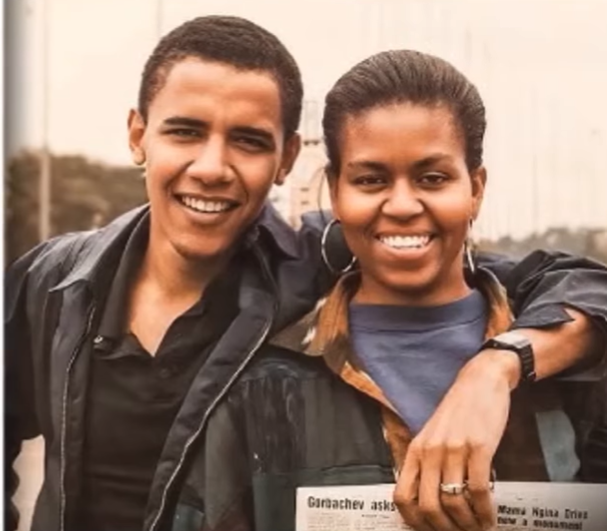Please note: A video capturing this event is provided at the end of this article.
In a recent episode of his widely watched program, Tucker Carlson found himself in an unexpected and dramatic exchange when guest Patrick Bet-David presented claims concerning former First Lady Michelle Obama that have since ignited intense discussion among viewers and political commentators. The conversation, which quickly became one of the most talked-about segments of the night, centered on revelations that Bet-David described as exposing a significant secret about Michelle Obama. While the specifics of his allegations have generated controversy and debate, the exchange underscores the current polarized state of political discourse in America.
Setting the Stage for a Provocative Discussion
Tucker Carlson’s program, known for its in-depth analysis and often provocative interviews, has long served as a platform for challenging discussions on politics and current events. On this particular evening, Carlson welcomed Patrick Bet-David—a successful entrepreneur, author, and public speaker renowned for his incisive commentary on political and economic issues—as his guest. The episode was billed as an exploration of political narratives and the influence of prominent figures on public opinion.
Ezoic
As the discussion unfolded, Bet-David transitioned from general political commentary to a subject that immediately captured the attention of both Carlson and the viewing audience. With a measured tone that belied the sensational nature of his claim, Bet-David alleged that there was a “dirty secret” involving Michelle Obama that had been hidden from the public eye for years. The remark, delivered with an air of conviction, prompted an immediate reaction from Carlson, whose initial expression of shock quickly gave way to a series of pointed questions aimed at clarifying the basis of Bet-David’s assertions.
The Claims and Their Context
According to Bet-David, the secret in question pertained to actions and decisions made during Michelle Obama’s tenure as First Lady, which he claimed had long-lasting implications for her public image and the broader political landscape. While Bet-David’s exact words have been subject to interpretation, he suggested that this undisclosed information could challenge prevailing narratives about her role in political and social issues.
Ezoic
During the interview, Carlson pressed for specifics. He asked Bet-David to provide concrete evidence or documented sources to substantiate his claims, emphasizing the importance of verifying such significant assertions before drawing conclusions. Bet-David acknowledged that his comments were based on a combination of insider information, historical context, and his own analytical perspective, though he was careful to note that not all details had been publicly confirmed. His response highlighted a broader tension in modern political commentary: the balance between presenting bold, provocative ideas and ensuring that such ideas are underpinned by verifiable facts.
Tucker Carlson’s Reaction
Carlson’s reaction to Bet-David’s claims was one of initial astonishment. Known for his composed yet questioning style, Carlson did not allow his surprise to derail the conversation. Instead, he engaged Bet-David in a series of follow-up questions designed to explore the implications of the alleged secret. Carlson’s approach was characterized by a blend of skepticism and a genuine desire to understand the full context behind the claims.
Ezoic
As the discussion intensified, Carlson’s demeanor reflected the gravity of the subject matter. He underscored the potential consequences of disseminating unverified information, particularly when it concerns public figures with a legacy as significant as Michelle Obama’s. His insistence on rigorous fact-checking and accountability resonated with many viewers, who have grown increasingly concerned about the role of media in shaping public perceptions through unchecked narratives.
The Broader Implications for Political Discourse
The exchange between Carlson and Bet-David comes at a time when political discourse in the United States is highly polarized. The incident has sparked debate over the responsibilities of media figures when handling explosive claims about public figures. Critics argue that sensational allegations, if not carefully scrutinized and verified, can contribute to misinformation and further entrench political divides.
Supporters of Bet-David’s approach, however, contend that challenging established narratives—even those involving revered figures like Michelle Obama—is essential for a healthy democracy. They argue that transparency and accountability should be paramount, regardless of an individual’s status or legacy. In this light, Bet-David’s comments, controversial as they may be, are seen by some as a call to reexamine accepted narratives and to question the mechanisms by which public trust is built and maintained.
